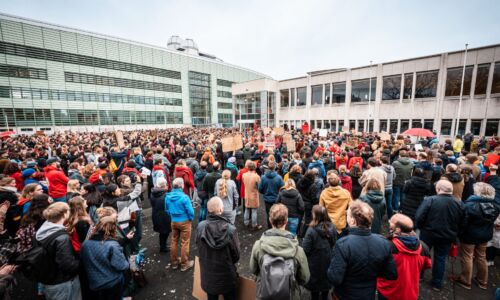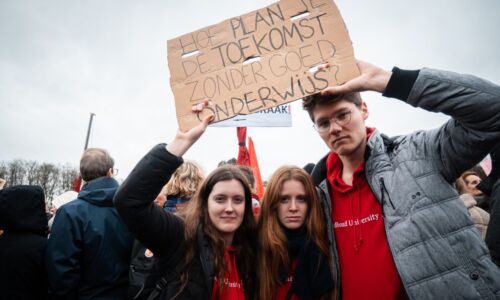Executive Board extends Vidi pilot
-
 Foto: Pixabay (Creative Commons)
Foto: Pixabay (Creative Commons)
Next year, Radboud University researchers will once again only be able to submit a Vidi application if their department offers them a permanent contract or tenure track appointment. The rule, which the Executive Board introduced by means of a pilot last year, is being extended for another year according to university spokesperson Martijn Gerritsen.
The measure was in response to the new “embedding guarantee” requirement that the Netherlands Organisation for Scientific Research (NWO) established for Vidi applications last year. This guarantee requires that institutions pledge to offer their Vidi laureates permanent employment or, at the very least, a tenure-track appointment.
Last year, the Nijmegen Executive Board decided that it wanted to offer its academics greater security. The Executive Board decided that, if faculties considered their researchers capable of submitting a Vidi application (and approved it), they would have to offer them a permanent contract (potentially conditional), regardless of the success of the application. This pilot was initially intended to apply to the 2018 Vidi application round.
By extending the measure for another year, the Executive Board aims to create clarity in a timely fashion for researchers who want to submit a Vidi application in 2019. The Executive Board will only evaluate the pilot after the current application round has ended (in June) and the deadline to submit Vidi applications for the next round is only shortly after that, on 3 October. Researchers often set aside months of preparation time when writing an application.
The NWO also announced yesterday that the national embedding guarantee that is being set for Vidi applicants will remain in force for the time being. An evaluation conducted by an academic funding source revealed that the number of applications in 2018 had declined by 25% when compared to the year before. The decrease in the number of applications was the primary goal of the NWO measure (with the intention of increasing the chances of an application being awarded with a grant).
No exceptions
In the meantime, the Nijmegen Executive Board has been continuing along the road it has paved for itself. However, when asked, Han van Krieken indicated that the Nijmegen pilot will have two key changes in comparison to last year. Firstly, faculties are not specifically required to offer their researchers the prospect of a conditional permanent contract. Offering a tenure-track appointment is sufficient as well. The rector told us that this change is in keeping with the recently adopted framework for tenure and career track policy.
Experiences
On Thursday 16 May, there will be a lunch meeting, during which Vidi applicants can discuss their experiences and wishes with Rector Magnificus Han van Krieken. Other interested parties are also welcome. The meeting will be held in the Elinor Ostrom building, room N 01.150, 12.30-1.30 pm. Registration is not necessary.
The second change is the elimination of any exceptions to the pilot rules. Last year, the permanent appointment requirement did not apply to researchers from whom it was the last chance to submit a Vidi application. According to NWO rules, Vidi applicants must have received their PhD within the past eight years.
The university made the exception in the wake of concerns from researchers and the faculties. Some researchers feared that, instead of quality, the financial situation in their faculty would be the deciding factor for whether or not the submission of their grant would be approved. Some of the institutes felt ambushed as well.




Cryopomp schreef op 30 mei 2019 om 16:53
“The Executive Board decided that, if faculties considered their researchers capable of submitting a Vidi application (and approved it), they would have to offer them a permanent contract (potentially conditional), regardless of the success of the application.”
This is apparent lie, as I applied for Vidi in 2018 and was not offered any contract at all.